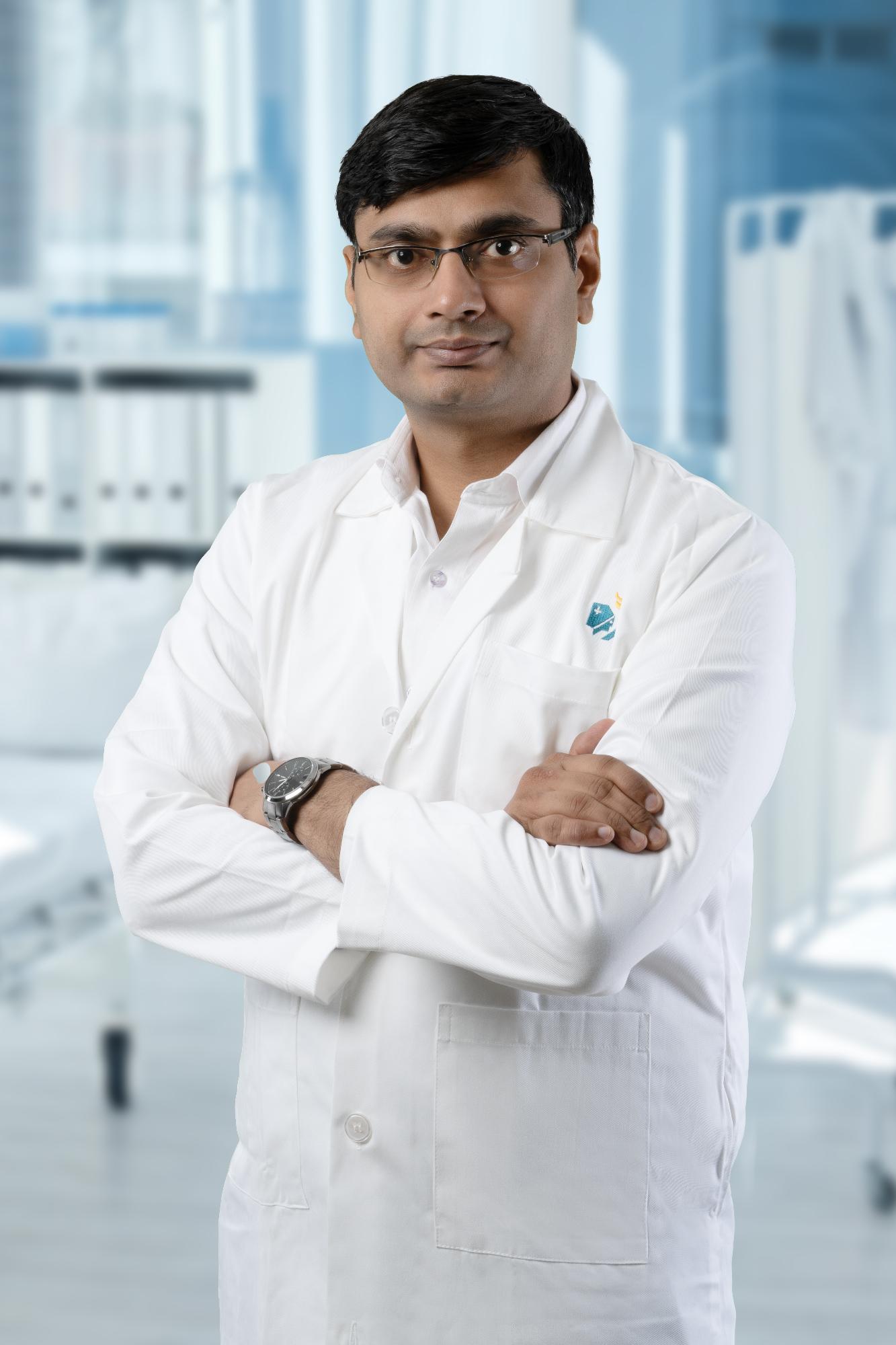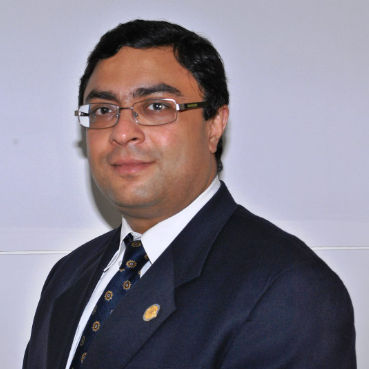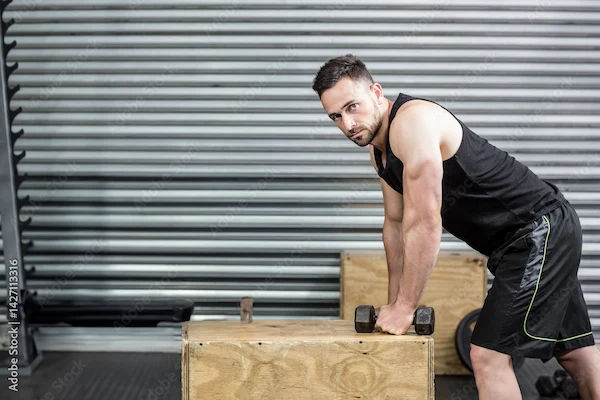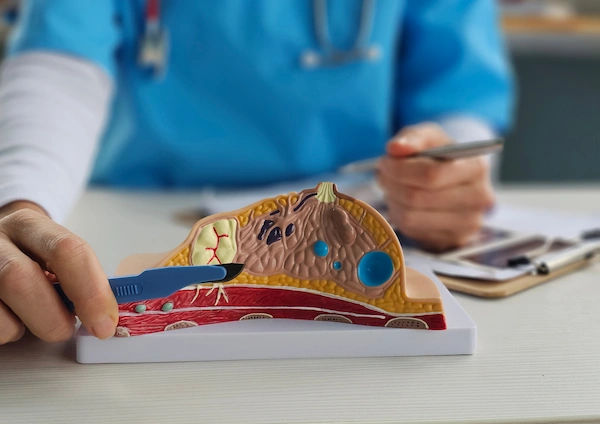Breast Surgery for Fulfilment
Understanding what breast surgery is and Learning about its types, procedures, benefits and risks, its clinical implications, psychological impact, costing, recovery and outcome.

Written by Dr. Sonia Bhatt
Last updated on 13th Jan, 2026

Introduction
Breast surgery can be an important step in enhancing self-confidence and empowerment for many people. It includes a variety of procedures designed to change the size, shape, or appearance of the breasts for both medical and aesthetic reasons, such as augmentation, reduction, and reconstruction following mastectomy.
These surgeries can provide significant physical and emotional benefits, helping individuals improve their self-image or recover from health challenges. With various options available, it’s crucial for individuals to seek advice from qualified professionals to ensure they make well-informed choices that reflect their personal goals. Overall, breast surgery can play a key role in boosting confidence and promoting a positive self-image.
Types of Breast Surgery for Fulfilment
Breast surgery includes a variety of procedures, each designed to meet specific needs or desires. Understanding these options can empower individuals to make informed choices that suit their personal and medical circumstances.
1. Breast Augmentation: A widely sought-after cosmetic procedure, breast augmentation uses implants to enhance the size and shape of the breasts. This option is perfect for those aiming for a fuller bust or wishing to restore volume lost due to weight changes or pregnancy, thereby improving the balance between the breasts and hips.
2. Breast Reduction: Individuals who experience discomfort from large breasts, such as back and neck pain or skin irritation, often seek breast reduction. This procedure involves removing excess fat, glandular tissue, and skin to create a breast size that is more proportionate to the body, alleviating associated discomfort.
3. Breast Lift (Mastopexy): Ageing, gravity, pregnancy, and weight changes can lead to sagging breasts. A breast lift addresses this by removing excess skin and tightening the surrounding tissue, resulting in a firmer shape. This procedure is frequently combined with augmentation or reduction to achieve the desired look.
4. Breast Reconstruction: After a mastectomy or injury, breast reconstruction aims to restore the appearance of the breast(s). This intricate procedure may utilise implants or tissue from other areas of the patient’s body. It is a crucial aspect of the emotional and physical recovery for many breast cancer survivors, helping them feel complete again.
Psychological and Emotional Impact of surgery
People opt for breast surgery for various personal reasons, often linked to their journey towards self-fulfilment and confidence. Motivations can be broadly grouped; some focus on aesthetics—enhancing or reducing breast size or lifting sagging breasts—to achieve a silhouette that aligns with their beauty ideals. Such cosmetic desires underscore the importance of physical appearance in self-esteem and mental well-being.
Beyond aesthetics, many seek breast surgery for medical reasons. For example, breast reduction is often pursued by women experiencing chronic pain from large breasts, significantly improving their quality of life. Additionally, breast reconstruction after a mastectomy offers hope and healing for cancer survivors, helping them regain their body image.
In these instances, breast surgery goes beyond mere appearance; it represents a vital step towards recovery and empowerment. It involves making informed choices that reflect one’s health, lifestyle, and identity, showcasing the diverse reasons for opting for breast surgery in today’s society.
The Consultation Process for surgery
When choosing a surgeon for breast implant surgery, consider their experience, board certification, patient follow-up, and your comfort level. Most procedures are performed by board-certified plastic and reconstructive surgeons.
A pre-surgery consultation is essential. Prepare to ask about the surgeon’s experience, the procedure, and expected outcomes. Your surgeon should evaluate your suitability for breast implants, explain the different types available, and discuss options for size, shape, surface texture, and placement, along with the associated risks and benefits. They should also show you before-and-after photos of previous patients to help set realistic expectations.
During the consultation, discuss your medical history, including any conditions, allergies, previous surgeries—especially to the breasts—and current medications, including supplements and over-the-counter products.
Surgical Procedure Overview
Breast surgeries, such as those for cancer, augmentation, and reduction, can be performed as either inpatient or outpatient procedures. Lumpectomies are usually outpatient, while mastectomies often require an overnight hospital stay. The length of the surgery varies: lumpectomies take about one to two hours, while breast reductions typically last three to five hours.
Here’s a general overview of the steps involved in breast surgeries:
General Steps for Breast Surgery:
1. Anesthesia: Patients receive either intravenous sedation or general anesthesia based on the procedure.
2. Incision: The surgeon makes an incision, which can be located around the areola, beneath the breast fold, or in the armpit, depending on the specific surgery and desired outcome.
3. Surgical Procedure: The surgeon carries out the necessary steps, whether that involves inserting implants for augmentation, removing excess tissue for reduction, or reconstructing the breast after trauma or surgery.
4. Closing the Incisions: Incisions are closed with sutures and may be sealed with surgical tape or adhesive, with the expectation that scars will fade over time.
5. Recovery and Results: Patients typically see the results soon after waking up from anesthesia and receive post-operative care instructions.
For those needing breast reconstruction due to trauma or a desire to change the appearance of the nipple, the procedure may involve implants or tissue from another part of the body, such as the abdomen. However, this may not restore the ability to breastfeed or sensation in the nipple.
Recovery and Aftercare post-surgery
Post-surgery, patients may be able to go home the same day or required to stay overnight. Drains may be in place and will be removed during a follow-up appointment. Pain around the incisions is normal; follow your surgeon's advice for pain relief. Fluid accumulation, known as a seroma, can occur and may resolve on its own, but your surgeon may need to drain it if it persists.
Recovery experiences vary, but modern techniques aim to reduce discomfort and speed healing. One may feel soreness, swelling, and bruising, which can typically be managed with medication. Recovery may take one to six weeks, with many resuming normal activities within a few days, though physical exertion should be limited.
Light activities, like walking, are generally possible within the first week, while strenuous activities should be approved by your surgeon, usually after 4 to 6 weeks.
Risks and Complications linked with surgery
Like any surgical procedure, breast surgery carries specific risks, which may include:
Anaesthesia-related complications
Bleeding
Infection
Altered nipple or breast sensation
Scarring
Leakage or rupture of implants
Pain
The potential need for revision surgery
It’s crucial to understand that breast implants can interfere with the early detection of breast cancer, a serious health issue. Furthermore, implants are not guaranteed to last indefinitely, and you may require additional surgery in the future. Changes in body weight, pregnancy, and menopause can also affect the shape of your breasts.
Impact on personal and professional life
Breast surgeries can have a profound impact on both personal and professional aspects of life, making it essential to understand the associated risks and potential outcomes.
1. Personal Life:
Self-Image and Confidence: Many people experience a boost in self-esteem and body confidence following surgery, positively affecting their overall well-being.
Physical Sensation: There may be alterations in breast or nipple sensation, which can influence intimacy and relationships, requiring some adjustment.
Lifestyle Changes: The recovery process may necessitate modifications to daily habits, including exercise routines and work obligations.
2. Professional Life:
Impact on Work: Recovery duration can vary based on job requirements, and those in physically demanding positions may need extended time off.
Perception and Bias: Individuals might encounter biases related to their appearance, which could affect career progression and workplace relationships.
Ongoing Health Management: Regular check-ups with the surgeon are important, as continuous health oversight can intersect with professional commitments.
While breast surgery can lead to significant positive changes, it's vital to prepare for both the emotional and practical challenges of recovery. Maintaining open communication with healthcare providers and support networks can facilitate a smoother transition.
Conclusion
Breast surgeries involve various procedures designed to address both aesthetic and reconstructive issues concerning the breasts. Whether for cosmetic enhancement or reconstruction after a mastectomy, patients can select from a range of surgical options suited to their individual requirements and objectives. Understanding the different types of breast surgeries, engaging with a skilled surgeon, and choosing a reputable hospital are vital for achieving safe and successful results.
Consult Top Oncologist
Consult Top Oncologist

Dr. Sanchayan Mandal
Medical Oncologist
17 Years • MBBS, DrNB( MEDICAL ONCOLOGY), DNB (RADIOTHERAPY),ECMO. PDCR. ASCO
Kolkata
MCR SUPER SPECIALITY POLY CLINIC & PATHOLOGY, Kolkata

Dr Gowshikk Rajkumar
Oncologist
10 Years • MBBS, DMRT, DNB in Radiation oncology
Bengaluru
Apollo Clinic, JP nagar, Bengaluru
Dr. B Shravanthi Reddy
Radiation Specialist Oncologist
8 Years • MBBS, DNB(Radiation Oncology)
Manikonda Jagir
Apollo Clinic, Manikonda, Manikonda Jagir

Dr. Amit Kumar Jain
Medical Oncologist
7 Years • MBBS, MD, Dr. NB (Medical Oncology)
Bengaluru
Apollo Clinic, Indiranagar, Bengaluru

Dr Shaikat Gupta Director Surgical Onco
Surgical Oncologist
35 Years • MBBS (University Gold Medalist), MS, FRCSEd
Kolkata
Apollo Multispeciality Hospitals , Kolkata, Kolkata
(100+ Patients)




